GwinnettForum | Number 20.85 | Nov. 20, 2020
THE FILM INDUSTRY is important in Georgia, and one Georgia Gwinnett College English professor now helps the industry in making sure period costumes are authentic. Read of her new field in Notable below. (Photo from Austin Hammock.)
 TODAY’S FOCUS: Watching the recounting at the Gwinnett Elections Office
TODAY’S FOCUS: Watching the recounting at the Gwinnett Elections Office
EEB PERSPECTIVE: Even when searching for a dog, be careful, scams abound
ANOTHER VIEW: Here’s one suggestion for us to have a more civilized society
SPOTLIGHT: Renasant Bank
FEEDBACK: Cites COVID-19 cases rates compared with other countries
UPCOMING: Sugarloaf CID starting campaign to reduce vehicle break-ins
NOTABLE: GGC English professor using her expertise…..for costuming
RECOMMENDED: Deep South by Paul Theroux
GEORGIA TIDBIT: Timberlands, then and now, are a major crop for Georgia
MYSTERY PHOTO: Lot and lots of stone is a clue for this Mystery Photo
CALENDAR: It’s coming December 3 to Braselton: The Cravin’ Bacon event
Watching the recounting at the Gwinnett elections office
(Editor’s note: Here’s a report from someone who watched the voter recount in Gwinnett. The author has lived in Gwinnett for 15 years. A native of Brooklyn, N.Y., she and her husband, a teacher who died in 2005, previously lived in West Palm Beach, Fla. The couple moved to Gwinnett to enjoy the four seasons, after enjoying camping at Stone Mountain Park.—eeb)
By Wendy Fine
LAWRENCEVILLE, Ga. | On November 16, I had the honor of being a run-off poll watcher for the Democratic Party at Gwinnett election headquarters in Lawrenceville.
Sunday night, via Zoom, we, “the watchers,” were instructed when to arrive and what we could and could not do during our session. No one told us what our duties would actually be.
So I showed up at 8 a.m. Monday at the elections office, received my credentials, and went inside. The large space was filled with workers, permanent employees from the elections office and paid temp workers to do the counting. About 50 volunteers, both Democrats and Republicans, watched the counters. Later on, about half the volunteers drifted away. I stayed until 11:30 a.m.
Wearing stick-on ID badges but still with no idea what we were supposed to do, we watchers simply milled around. It was democracy in action (or inaction)! The counting wouldn’t start for another hour or so, so we waited (more democracy in action).
Lots of tables had been set up for counting, each marked with the names of the candidates or the words “Write-in,” “Spanish” and “Help.” Other unmarked tables were set up for auditing the ballots, following the actual counting.
Eventually, the election office staff brought out suitcase sized containers marked with the name of each polling precinct plus letters and numbers to distinguish them. These containers held batches of sealed, silverish envelopes which contained the actual ballots. We, the “watchers,” each stood in front of a pair of counters (or auditors), so that we could follow the whole process. It was incredibly quiet as the counters concentrated.
As the envelopes were opened, you could hear the counters whispering “Biden,” “Trump,” “Jorgensen,” etc. as they sorted, stacked, and counted the contents of each envelope. After being stacked into manageable piles, the ballots were counted, the counts added and recorded, then they were replaced into the envelope which was then resealed. A signed sticker was affixed and placed in a tub until the contents of each individual envelope had been counted, then the envelope was replaced in the proper “suitcase.”
Then on to the next batch. All tallying was by hand, with no adding machines or computers. I watched a pair of counters of absentee ballots as the rest were counting electronic ones. We, the watchers, were not allowed to speak, only watch.
When a lunch break was announced, the counters finished the stacks they were working on, put everything back into the suitcase and a supervisor came around with zip ties and sealed the suitcase until it could be reopened after lunch.
Though watchers were not supposed to talk, only make sure that everyone was doing their job, we still managed to speak quietly to each other. There was one woman who kept making rather loud comments about why there were so many more piles for Biden than for Trump; she also commented when one man wouldn’t wear a mask, loudly remarking “they make all this fuss about a stupid mask but no one is commenting about the millions of votes that were stolen.” (I don’t know if they asked him to leave or not.) We all had a good laugh about that.
The recounting was democracy in action and, and for me, a fascinating experience. I hope I’ll get the opportunity to do this again for the run-off among the four candidates who are running for the two Senate seats.
- Have a comment? Send to: elliott@brack.net
Even when searching for a dog, be careful; Scams abound
By Elliott Brack
Editor and Publisher, GwinnettForum
NOV. 20, 2020 | Somehow, I think was on the way to getting scammed. Over all things, a dog.
Ever since our 16-year-old rescue dog, Hercules, died about three months ago, we’ve been thinking about getting another dog. We’ve always had dogs, four main ones, living with us for 9, 15, 18 and (for Herk) 16 years.
We’ve been checking local shelters for a friendly face, looking for a 20 pound or so dog. Hercules came from the White County Animal Shelter.
We have found few mid-size dogs in area shelters. Many were large dogs, the Retrievers, Hounds and Bulldogs, and many more adoptable were smallish, Chihuahuas, Yorkies, or poodles. But few 20 pounders.
One site, among many we have checked for over a month now, is Craigslist in Atlanta. On two occasions, a dog we spotted had just been adopted. But we kept trying.
Then came last weekend, with someone on Craigslist offering a male or female (or both) Corgis. Our daughter has had Corgis, and these were cute puppies.
Now follow the emails we had with the person offering Corgis.
“Hi, thanks for contacting us regarding our cute Corgi puppies. There are two of them, a female (Sasha) and a male (Ed) of the same parents. They are 11 weeks old, vet checked and will come with all papers needed. The puppies are very playful and love playing with kids . We are giving the pups out for adoption because we just relocated to a non-pets apartment and can’t keep them any more. We will be willing to give you these pups if you can promise us never to sell them because they have been like kids to us.”
They asked questions of us: had we owned a pet before, did we have a vet or backyard fence, and was I a breeder? They also said: “All we need is just a very caring and loving home for our babies where they will be well loved and spoiled.”
I replied asking for them to call me so I could go see the puppies in Atlanta.
This time the reply came in this manner: “After reading through your mail, you moved to the number one spot in my heart as a potential adopter of our lil pup.” Then they gave more details about the pups: “They eat two times a day, are potty trained and socialize with kids.”
They then added: “We are giving the puppies for FREE since we just relocated some few days ago to Norfolk, Va. If you can’t make the drive, we can have Ed registered at a nearby pet transportation company and he will be home delivered to you okay. All you will have to do is pay for the transportation fee.”
Again I asked to get their phone number to learn some more details.
The next email told me the fee would be $350 for the dogs “to be transported right at your doorsteps.”
But by now I was having second thoughts, hearing too many coincidences. I had heard similar details before in another Craigslist post. Previously someone had “transferred to a no-pet apartment in a city in Colorado,” also offered to ship a dog “to a good home” if I paid the transportation fee of $350.
Hmmmmn. And now in their last email, they wanted my “contact numbers” (presume credit card?) and nearest airport. What? They didn’t know the nearest airport after moving to Norfolk from Atlanta?
So we’ll bypass those Corgis, though don’t they look cute? And we think we missed “getting clipped,” in doggie terms.
Be careful. Scams can show up anywhere.
- Have a comment? Send to: elliott@brack.net
Here’s one suggestion for us to have a more civilized society
(Editor’s note: Today’s author is a long-time resident of Georgia, the past five years in Duluth. He grew up in Jackson County and lived in Athens for 30 years. An Army veteran, he is a graduate of the University of Georgia, former CEO of Fresh Frozen Foods of Jefferson, a company that processed and sold frozen vegetables. He is retired, married 35 years, and has three children and one grandchild.—eeb)
By Bill Griffin
DULUTH, Ga. | Prior to the advent of social media, public discourse was more civilized.
Inherent costs come with real time public speech on open forums. Facebook and Twitter are filled with gratuitous comments, insults, and defamation. Television talking heads spew venom 24/7/365.
Depending on which side you are on any argument, you will blame the other for the rudeness. Accusations of “misinformation” abound, never mind that lying is protected speech under the First Amendment. If you say something disagreeable, you could lose your job due to “cancel culture,” which thrives in an environment where a social media platform, the true publisher, has no liability for an author’s libel and widespread defamation on social media is the result.
The U.S. Supreme Court ruled in Smith v. California (1959) that book stores (distributors) are not considered publishers. Is Twitter a distributor in the same manner as a bookstore? While bookstores can choose not to stock a book for sale, they don’t act as editors. Twitter acts as a publisher, but it is not treated that way in the law.
In 1996 Congress passed the Communications Decency Act (CDA) of 1996. Section 230(c)(1) states: “No provider or user of an interactive computer service shall be treated as the publisher or speaker of any information provided by another information content provider.” Christopher Cox, one of the legislation’s cosponsors, states that if the section is repealed, “It is difficult to imagine that most of the online services on which we rely every day would even exist in anything like their current form.”
It’s hard to believe that, as an example, online banking would go away with repeal. Assuming Cox is at least partially correct, there are tradeoffs. Another intent claimed at the time was that 230(c)(1) was needed to allow the Internet to flourish. The market capitalization of Facebook, Twitter, and Google render that reason obsolete long ago.
Some claim that repeal of section 230(c)(1) will chill free speech. But, the reverse could be true. Traditional election polls in the 2020 election were wildly inaccurate. Did social media have an impact on voters being reluctant to speak their mind to pollsters? Also, many people do not participate on social media out of concern they may be accused of committing libel or having it committed against them; or just the plain negativity of the discourse.
If section 230(c)(1) is repealed, platforms, such as Twitter, may ramp up censorship, labeling, and removing any material it objects to as “misinformation” or for any reason it wishes. Those that decry censorship may get more of it on Twitter, but presumably would gravitate to other social media platforms.
Libel affects a small percentage in which actual damages can be proven, but libel is often devastating to those affected. Those committing libel or slander through social media platforms do so anonymously or an aggrieved party has great difficulty in pursuing a claim against the author. Victims of libel should have the option of making a case against the true publisher, regardless of the medium.
It is reasonable that Congress should repeal section 230(c)(1). Doing so does not abolish social media. Many countries do not have comparable laws. It’s hard to believe the world would be a worse place if there were just a few less open forums. However, the market demand for them will not disappear. Social media operators will find a way to both provide open forums and take on the liabilities that it should have as a publisher.
Eliminating 230(c)(1) might be more civilized with fewer social media sites.
- Have a comment? Send to: elliott@brack.net
Renasant Bank
The public spiritedness of our sponsors allows us to bring GwinnettForum.com to you at no cost to readers. Today’s sponsor is Renasant Bank, which has humble roots, starting in 1904 as a $100,000 bank in a Lee County, Miss. bakery. Since then, we have grown to become one of the Southeast’s strongest financial institutions with approximately $13.9 billion in assets, approximately 2,500 associates, and more than 200 banking, lending, wealth management and financial services offices in Mississippi, Alabama, Tennessee, Georgia and Florida. All of Renasant’s success stems from each of our banker’s commitment to investing in their communities as a way of better understanding the people we serve. At Renasant Bank, we understand you because we work and live alongside you every day.
- For more details, go to www.renasantbank.com
- For a list of other sponsors of this forum, click here.
Cites COVID-19 cases rates compared with other countries
Editor, the Forum:
![]() Jack Bernard notes that “other developed” nations have much better numbers versus our results to COVID-19. This has become a generally accepted premise.
Jack Bernard notes that “other developed” nations have much better numbers versus our results to COVID-19. This has become a generally accepted premise.
However, it is not necessarily accurate. When comparing outcomes of developed countries with similar economic exposure to China; and adjusting that information relative to each country’s population, we find results to be somewhat similar.
Following are death rates per confirmed number of COVID-19 cases:
#Cases/millions Deaths Death %rate
U.S. 11 247,000 2.2
France: 2 45,000 2.3
Italy 1.2 45,000 3.8
Spain 1.5 42,000 2.8
U.K. 1.4 52,000 3.7
Germany 0.8 13,000 1.6
Belgium 0.53 14,000 2.6
Source: World Health Organization
— Daniel Bieller, Dacula
Send us your thoughts: We encourage you to send us your letters and thoughts on issues raised in GwinnettForum. Please limit comments to 300 words. We reserve the right to edit for clarity and length. Send feedback and letters to: elliott@brack.net
Sugarloaf CID starting campaign to reduce vehicle break-ins
The Sugarloaf Community Improvement District (CID), in partnership with the Gwinnett Police Department, is launching a campaign to reduce the number of vehicle break-ins in the district.
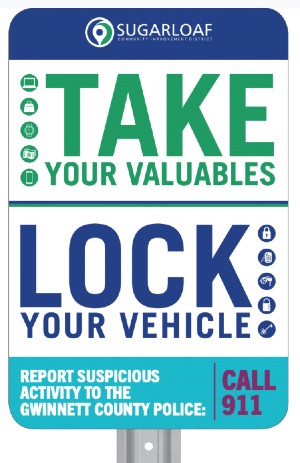 Vehicle break-ins are the top crime in the area. It’s often as many as half of vehicle break-ins happen to cars that have been left unlocked. The CID’s campaign urges drivers to “take your valuables and lock your vehicle” when leaving a parked vehicle—any time of day.
Vehicle break-ins are the top crime in the area. It’s often as many as half of vehicle break-ins happen to cars that have been left unlocked. The CID’s campaign urges drivers to “take your valuables and lock your vehicle” when leaving a parked vehicle—any time of day.
CID Board Chairman Brand Morgan says: “The Sugarloaf area is a target-rich environment. We want to make sure we keep reminding people to take valuables and lock their cars, so they don’t make themselves targets for criminals.”
The CID is partnering with the Gwinnett Police and commercial property owners to raise the visibility of the “take and lock” message. Soon visitors will see signs reminding them to “take your valuables and lock your vehicle” in the district’s parking areas. The campaign will also spread the message through the CID’s social media, newsletters, and other outreach methods.
Major C.T. Rafanelli, the Gwinnett Police Dept. Central precinct commander, says: “The easiest way for people to combat vehicle break-ins is by simply taking their valuables and locking their car. I believe that the Take/Lock program is an excellent way to educate and remind citizens of that.”
The Sugarloaf CID has also installed Flock Safety cameras throughout the district. The solar powered, wireless cameras capture license plates day and night, as well as the make, model, and color of vehicles. Timestamps are also included in recordings, making it easy to search for a specific vehicle. As a part of the agreement with Flock Safety, the Gwinnett County Police Department, with the permission of the camera owners, is provided with access to recordings made by the cameras in order to quickly respond to any incidents in the district. The Flock cameras have proven to be a huge success, leading to solving a number of crimes that would previously have gone unsolved.
CID Executive Director Alyssa Davis adds: “We want to be proactive in addressing crime in the Sugarloaf CID. Vehicle break-ins are often a preventable crime. If drivers take valuables and lock their vehicles, we could see a dramatic decrease in the number of break-ins here. Together with our investment in Flock cameras with license plate readers, we think criminals will get the message not to commit crimes in the Sugarloaf CID.”
- Property owners interested in getting the “take and lock” signage for their property can contact the CID for details: www.sugarloafcid.org.
GGC English professor using her expertise … for costuming
By Jackson Gann
Dr. Jennie Stearns has a teacher’s heart. Originally from Lake Charles, La., Stearns, who now lives in Suwanee, has spent more than 28 years as an educator and is currently an associate professor of English at Georgia Gwinnett College (GGC). However, like many, she has more than one passion in life. For Stearns, it is costuming. Stearns currently works as a costume supervisor for Super Science Showcase, written and directed by Lee Fanning.
The collection offers more than nine different series on a variety of different platforms such as films, books, comics, short stories and games for their stories. Each platform tells exciting, character-driven adventure stories that aim to teach the viewer. Super Science Showcase has become very successful and is now being streamed on Amazon Prime.
Stearns says: “I started off as a volunteer for the first year, but was hired on for the second.”
Stearns has worked on several different segments within the anthology series, including the popular Tom Sawyer and Huckleberry Finn and Shocklosers segments, which recently filmed on location in Alabama. As costume supervisor, her responsibilities include creating and maintaining the costumes on the set. “I would go to different thrift stores or other local stores and piece together each costume that I made,” Stearns says.
Working with more than 30 people who needed as many as five costumes each, can be a demanding job. Each costume had to be perfect for each shot and most importantly, had to look identical in each shot. Stearns had to be ready for anything, as costumes can get damaged or dirty during a production.
She adds: “My job on the set was to repair or clean any damaged costumes, and to also realign any mask or costume to maintain the correct appearance throughout the show.” Stearns adds that experience as an English instructor more than prepared her for the rigors of costuming work. “My knowledge of the 19th century and other genres has helped me recognize the correct types of clothes worn in different time periods and how to accurately create each costume,” she explained.
In the future, Sterns plans to continue to teach at GGC and contribute to the entertainment industry through additional projects. She hopes to inspire students to participate in what continues to be a lucrative industry, which generates more than $9.5 billion and supports 92,000 jobs in Georgia.
Her daughter, Piper Collins, is a first-year film major at GGC and a working, SAG-eligible actor who plays the character Madison in Super Science Showcase. The proud mother says: “It was her interest in film that piqued my interests and I’ve found that there are plenty of opportunities out there to use your expertise in a fun and unique way.”
Four nonprofits get from $47,500 from Jackson EMC Foundation
The Jackson EMC Foundation board of directors awarded a total $84,030 in grants during its October meeting, including $47,500 to organizations serving Gwinnett County. They include:
 $15,000 to For Her Glory, a Gainesville agency that provides breast cancer patients in Banks, Barrow, Franklin, Gwinnett, Hall, Jackson and Lumpkin counties with items that are not covered by insurance, such as wigs, bras, compression sleeves and gloves.
$15,000 to For Her Glory, a Gainesville agency that provides breast cancer patients in Banks, Barrow, Franklin, Gwinnett, Hall, Jackson and Lumpkin counties with items that are not covered by insurance, such as wigs, bras, compression sleeves and gloves.
- $15,000 to SISU of Georgia, Inc., a Gainesville non-profit organization providing educational, therapeutic, nursing and family support services to children with disabilities in Banks, Barrow, Gwinnett, Hall, Jackson and Lumpkin counties, to support the Early Intervention Program that provides special needs children.
- $10,000 to NOA’s Ark, Inc., for its Trauma Counseling Program, designed to serve adults and children in Gwinnett, Hall and Lumpkin counties recovering from family violence, child sexual assault, and dating violence.
- $7,500 to Lekotek of Georgia, a charitable organization that provides accessible play, adaptive technology and toys, information and resources to children with disabilities from Banks, Barrow, Clarke, Franklin, Gwinnett, Hall, Jackson, Lumpkin and Madison counties, to provide services through its Gwinnett satellite office.
Deep South by Paul Theroux
One of our best and most prolific American travel writers is Paul Theroux. He’s written long books of many, many places around the world. But the New Englander knew little about the American South, so embarked on a two-year foray, dipping often into the South. This book is not the high quality of his previous works. He misses the essence of the South, because of his own northern prejudices. He never was able to understand one of the key elements of the South, its racial divide. All throughout the book when talking to people in the South, he fails to identify the race of the person. That’s important in the South, since the same words coming from a black or white person mean something entirely different. If you feel compelled to read this book, get it from the library. It’s not worth the cost of adding to your library. –eeb
An invitation: what books, restaurants, movies or web sites have you enjoyed recently? Send us your recent selection, along with a short paragraph (150 words) as to why you liked this, plus what you plan to visit or read next. Send to: elliott@brack.net
Timberlands, then and now, are a major crop for Georgia
Prior to the 1860s commercial logging in Georgia occurred primarily along navigable streams, where logs could be floated to downstream ports. However, after the Civil War (1861-65), the expansion of railroads and portable saw mills allowed access to remote mountain slopes and the interior Coastal Plain. At the same time northeastern forests were becoming depleted, and new markets for longleaf pine heartwood emerged. Lumber became a huge commodity in Georgia. The state was the nation’s leading producer of lumber in the 1860s and 1870s, and by 1890 Georgia sawmills were cutting more than 1.6 million board feet per day.
Nearly all the longleaf pine forest was cut, as were the magnificent cypresses of the Okefenokee Swamp, and over time, the old-growth trees of the mountains. In addition, urbanization occurred along the railroad lines, and highway development began with the arrival of the automobile.
Hence, by the 1930s commercial agriculture, industrial logging, and increasing urbanization had created a landscape far different from that first encountered by Europeans. The stumps and scraggly trees of cut-over land, silted streams and denuded hillsides of abandoned farms, and growing networks of towns and transportation corridors had replaced much of the forest mosaic.
In the mid-1900s two trends changed the tenor of human impact on the Georgia landscape. First, soil and timber depletion spurred conservation efforts. Second, much of the barren land reverted to trees.
In 1935, as dust from the parched western states blew into Washington, D.C., Congress passed the Soil Conservation Act. The Georgia Soil Conservation Districts Law followed in 1937. Soil conservation districts were established throughout the state, encouraging farmers to build terraces, plant kudzu and lupine in barren fields, convert fields to pasture, and practice strip cropping and contour tillage. Erosion rates declined greatly. In 1944 Congress passed the Flood Control Act. The soil conservation districts became soil and water conservation districts and organized the construction of detention dams and recreational lakes, as well as stream dredging and channelization.
An impetus to preserve wild landscapes had gained national momentum in the early twentieth century. Following that course, many state and national wildlife refuges, parks, and forests were established in Georgia in the 1920s and 1930s, in a movement that continued throughout the century.
While many farms adopted better farming practices, others were abandoned. In a trend that peaked in the 1960s, abandoned fields underwent secondary succession, a process in which grasses, shrubs, pines, and hardwoods succeed another over time.
In the 1930s Charles Herty, a chemist at the University of Georgia, revolutionized land use in Georgia when he stimulated the pulpwood industry by using young pines to make white paper. Many old fields, particularly in the Coastal Plain, converted to pine plantations.
Thus a partially forested landscape reemerged in Georgia, although it was not the same forest encountered by the first Europeans. Highways and towns fragmented the woodlands, most trees were young second growth, and pine plantations lacked diversity. Fire suppression prevented open forests and the return of longleaf pines and encouraged more thin-barked trees in the Piedmont. Many natural wetlands, such as parts of the Okefenokee Swamp, had been drained for pine plantations and agriculture, even as dams created vast new lakes.
- To view the Georgia Encyclopedia article online, go to http://georgiaencyclopedia.org
Lots and lots of stone is a clue for this Mystery Photo
Several clues abound in this Mystery Photo, when you look carefully. Try to located this photograph, and tell us something about it. Send your thoughts to elliott@brack.net, to include your hometown.
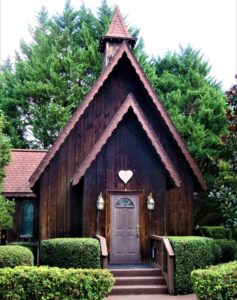 We thought more readers would have recognized the last Mystery Photo, since so many people from Gwinnett have driven by the Alpine Wedding Chapel in nearby Helen, Ga. The photo came from Jerry Colley of Alpharetta.
We thought more readers would have recognized the last Mystery Photo, since so many people from Gwinnett have driven by the Alpine Wedding Chapel in nearby Helen, Ga. The photo came from Jerry Colley of Alpharetta.
Allan Peel of San Antonio, Texas, wrote: “Today’s Mystery Photo is of the Alpine Wedding Chapel in Helen, Ga. There are actually three different venues where wedding ceremonies are held: the Little Chapel, the Garden Room, or the Alpine Wedding Chapel. The latter is what is featured in today’s mystery photo; a beautiful, cedar structure with a 22-foot cathedral ceiling, crystal chandeliers with matching crystal wall sconces and seating for up to 40 guests.
Others recognizing the photo included Jim Savadelis, Duluth; Lynn Naylor, Norcross; Ross Lenhart, Stone Mountain; Gloria James, Lawrenceville; and George Graf of Palmyra, Va., who added: “Alpine Helen, with a population of only 430 residents, is the state’s third most visited city. The town started as a home to the Cherokee, and then to European settlers who came for the gold and the timber. Today, people come for the Blue Ridge Mountain setting and the Southeast’s finest Bavarian Village for a glimpse of Germany. Quaint hotels, cobblestone walkways, Alpine food and drink is a nice family getaway for a quiet weekend, or a walking tour. It’s surrounded by natural beauty, wineries, artisan tours, festivals, and a great place to enjoy the mountains of Georgia.”
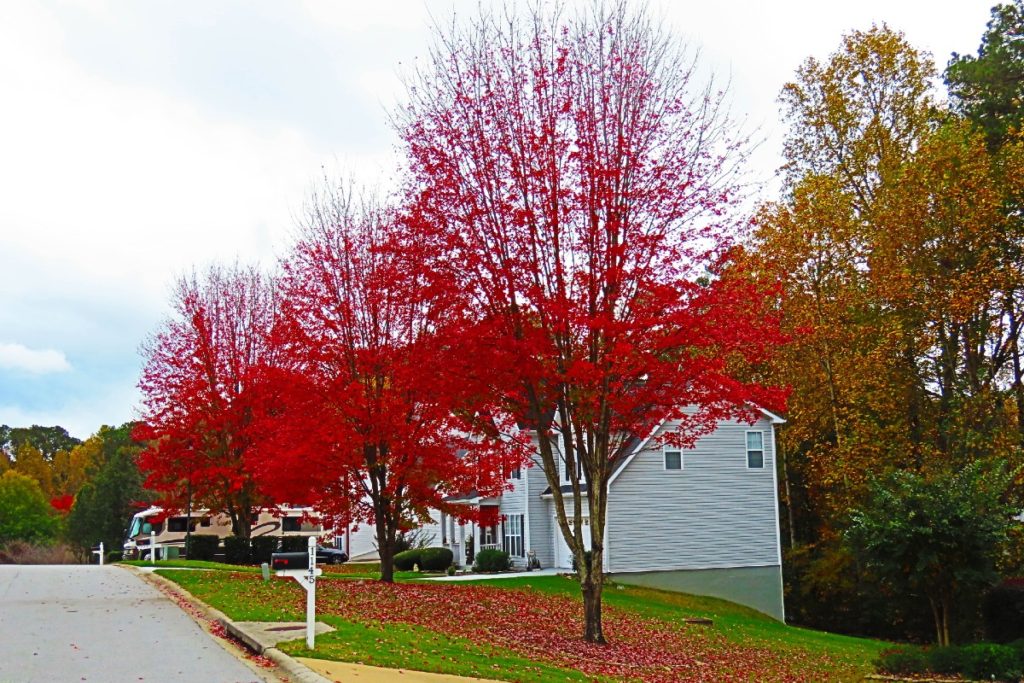 It’s getting to be “color time” throughout Gwinnett. Roving Photographer Frank Sharp took photos recently of red maple trees in his subdivision, and at the Lawrenceville Public Library. You can see similar explosions of color these days, as the peak of the color season is about upon us, in subdivisions and office parks. Most of these colorful trees are not native trees, but developers have been the ones responsible for planting these trees, which many now more mature, sending off the bright colors.
It’s getting to be “color time” throughout Gwinnett. Roving Photographer Frank Sharp took photos recently of red maple trees in his subdivision, and at the Lawrenceville Public Library. You can see similar explosions of color these days, as the peak of the color season is about upon us, in subdivisions and office parks. Most of these colorful trees are not native trees, but developers have been the ones responsible for planting these trees, which many now more mature, sending off the bright colors.
It’s coming Dec. 3 to Braselton: The Cravin’ Bacon event
It’s coming December 3, rain or shine: the Cravin’ Bacon Walk in downtown Braselton. Explore Downtown Braselton, finish up holiday shopping or just have a fun night on the town with friends. Squealer Tickets will include a map of trough stop locations where walkers will pick up a bacon treat from each participating business. All walkers will be eligible for a bacon-themed gift basket drawing to be held the following day. The event will be from 4 to 9 p.m. Tickets are $35 per person sold to those over age 16. Tickets are available through eventbrite.com
GwinnettForum is provided to you at no charge every Tuesday and Friday.
Meet our team
- Editor and publisher: Elliott Brack, 770-840-1003
- Managing editor: Betsy Brack
- Roving photographer: Frank Sharp
- Contributing columnist: Jack Bernard
- Contributing columnist: Debra Houston
- Contributing columnist: George Wilson
More
- Location: We are located in Suite 225, 40 Technology Park, Peachtree Corners, Ga. 30092.
- Work with us: If you would like to serve as an underwriter, click here to learn more.
Subscriptions to GwinnettForum are free.
- Click to subscribe.
- Unsubscribe. We hope you’ll keep receiving the great news and information from GwinnettForum, but if you need to unsubscribe, go to this page and unsubscribe in the appropriate box.
© 2020, Gwinnett Forum.com. Gwinnett Forum is an online community commentary for exploring pragmatic and sensible social, political and economic approaches to improve life in Gwinnett County, Ga. USA.


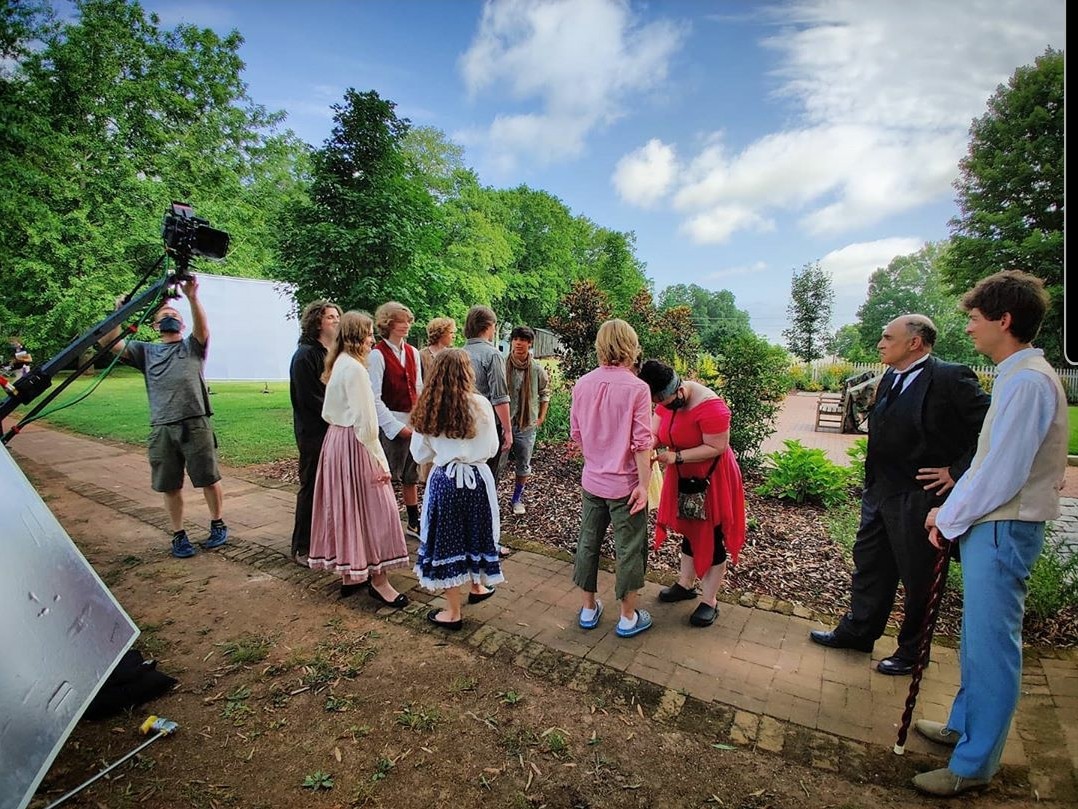
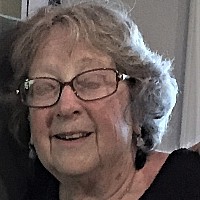
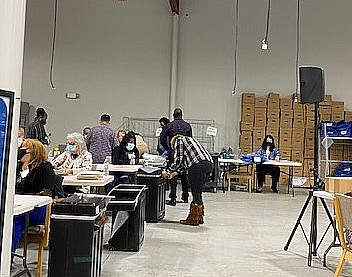

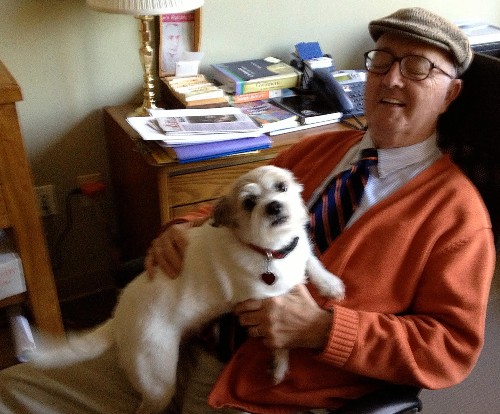


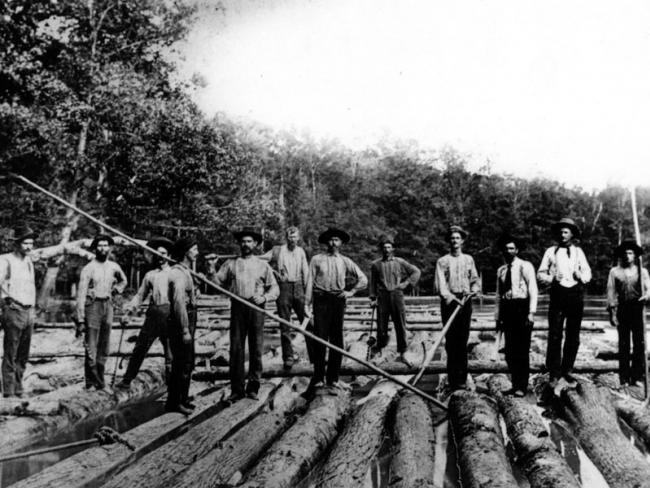

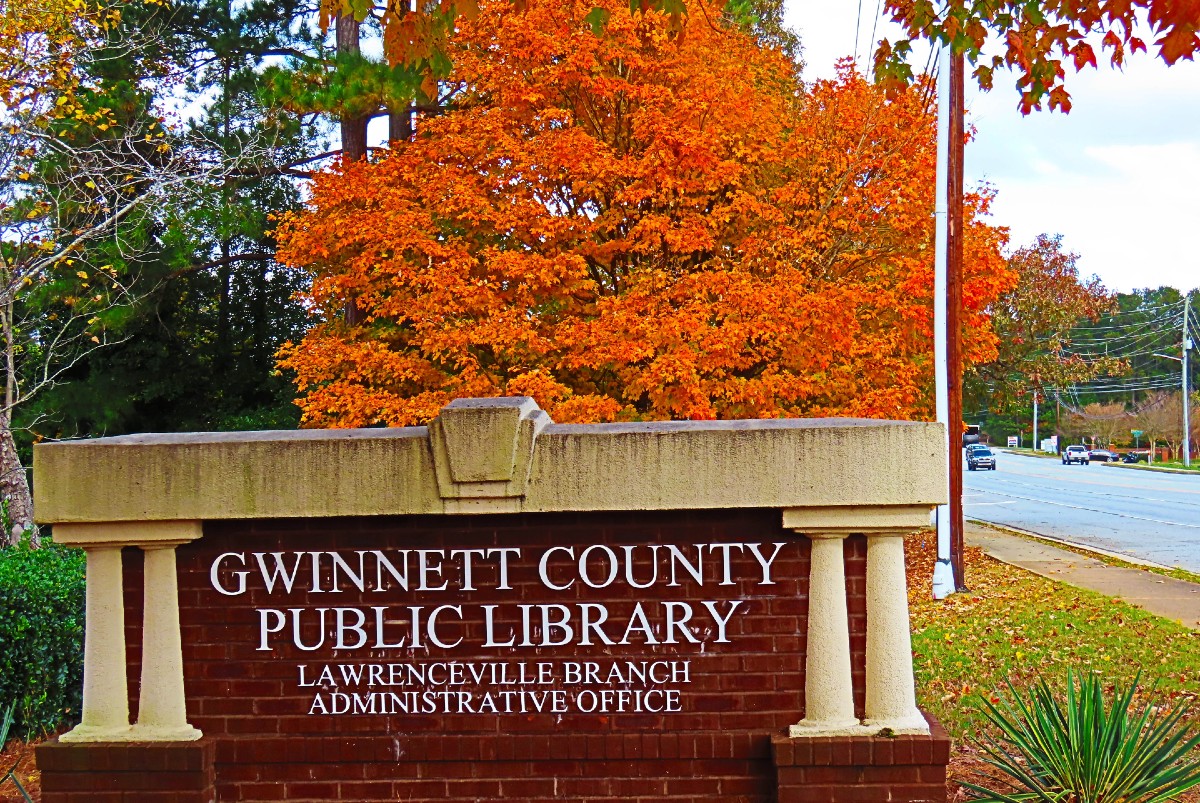







Follow Us